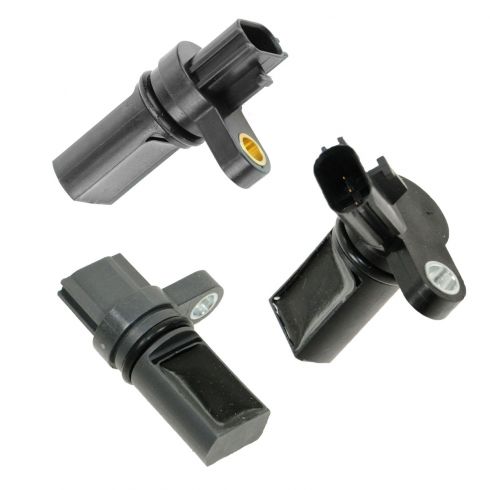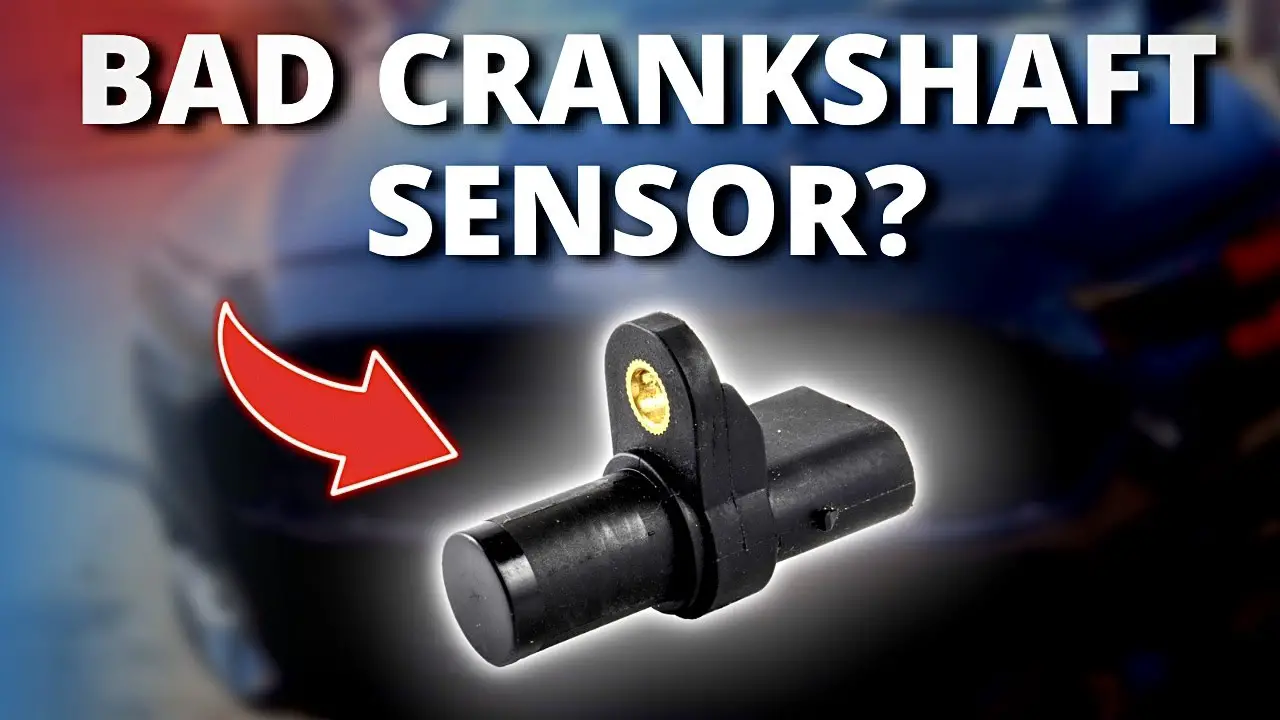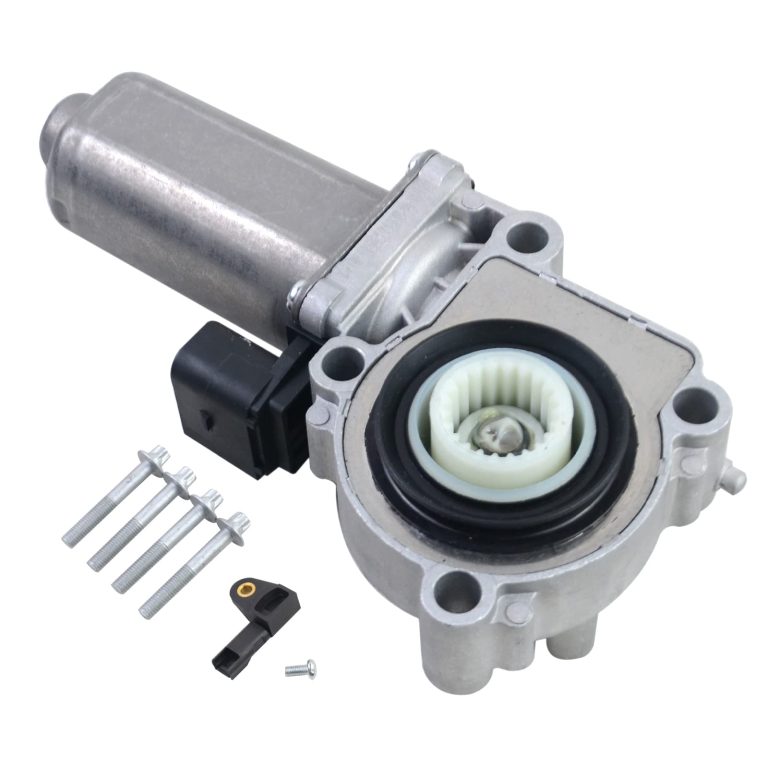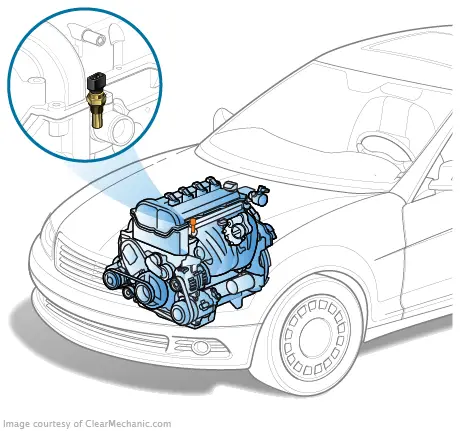Symptoms of a Bad Crankshaft Sensor
Your vehicle is a complex piece of machinery that relies on numerous components working together to ensure it runs smoothly. One crucial component is the crankshaft sensor, which plays a vital role in the functioning of the engine. The crankshaft sensor is responsible for monitoring the position and rotational speed of the crankshaft, and it provides the engine control module (ECM) with essential data to ensure proper ignition timing and fuel injection.
When the crankshaft sensor starts to malfunction or fail, it can have a significant impact on the performance of your vehicle. In this article, we will discuss the common symptoms of a bad crankshaft sensor that every car owner should be aware of.

Credit: www.1aauto.com
Warning Signs of a Bad Crankshaft Sensor
Identifying the symptoms of a faulty crankshaft sensor early on can save you time and money by addressing the issue before it leads to more extensive damage. Below are some common warning signs that indicate a potential problem with the crankshaft sensor:
1. Engine Stalling
One of the most prevalent signs of a bad crankshaft sensor is frequent engine stalling. If the sensor is unable to provide accurate data to the ECM, it can result in a loss of signal, leading to an abrupt shutdown of the engine. This stalling can occur at any speed and may become more frequent as the sensor continues to deteriorate.
2. Rough Idling
A malfunctioning crankshaft sensor can also cause the engine to idle roughly or unevenly. You may notice that the engine sounds and feels shaky when the vehicle is at a standstill. This is often a result of the sensor providing erratic readings, which affects the engine’s ability to maintain a stable idle speed.
3. Difficulty Starting The Engine
If you find that your vehicle is experiencing difficulty starting or has an extended cranking time before the engine starts, it could be attributed to a faulty crankshaft sensor. The sensor’s inaccuracies can result in improper fuel delivery and ignition timing, making it challenging for the engine to start promptly.
4. Decreased Fuel Efficiency
A bad crankshaft sensor can also lead to decreased fuel efficiency. When the sensor fails to provide the ECM with precise data, it can disrupt the air-fuel mixture, causing the engine to consume more fuel than necessary. You may notice a drop in your vehicle’s miles per gallon (MPG) as a result of this issue.
5. Check Engine Light Illumination
Modern vehicles are equipped with onboard diagnostics that monitor various systems and components. When the ECM detects irregularities related to the crankshaft sensor, it will trigger the check engine light to alert the driver of a potential issue. If you see the check engine light illuminated on your dashboard, it’s essential to have the vehicle diagnosed by a professional to pinpoint the underlying problem.
6. Loss Of Power
A failing crankshaft sensor can lead to a noticeable loss of engine power. This can manifest as sluggish acceleration, especially when trying to accelerate from a stop or while driving uphill. The sensor’s faulty readings can disrupt the engine’s performance, resulting in a lack of power output.
Frequently Asked Questions Of Symptoms Of A Bad Crankshaft Sensor
What Are The Common Symptoms Of A Bad Crankshaft Sensor?
The common symptoms of a bad crankshaft sensor include stalling, misfiring, and problems starting the vehicle.
How Does A Bad Crankshaft Sensor Affect The Engine Performance?
A bad crankshaft sensor can cause engine hesitation, rough idling, and decreased fuel efficiency.
Can A Bad Crankshaft Sensor Cause The Check Engine Light To Turn On?
Yes, a malfunctioning crankshaft sensor can trigger the Check Engine light to illuminate in your vehicle.
What Should I Do If I Notice Symptoms Of A Bad Crankshaft Sensor?
If you observe symptoms of a bad crankshaft sensor, it is advisable to have your vehicle inspected by a mechanic.
Conclusion
As a critical component in the engine management system, the crankshaft sensor plays a pivotal role in ensuring the smooth operation of your vehicle. Being aware of the symptoms of a bad crankshaft sensor can help you address potential issues before they escalate, ultimately saving you time and money in repairs. If you notice any of the warning signs discussed in this article, it’s crucial to have your vehicle inspected by a qualified mechanic to diagnose and rectify the problem. Ignoring the symptoms of a faulty crankshaft sensor can lead to more severe engine issues and unexpected breakdowns, underscoring the importance of proactive maintenance and timely repairs.



